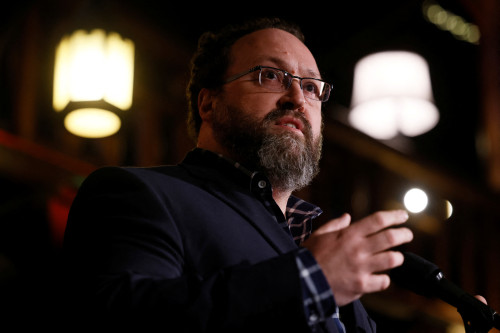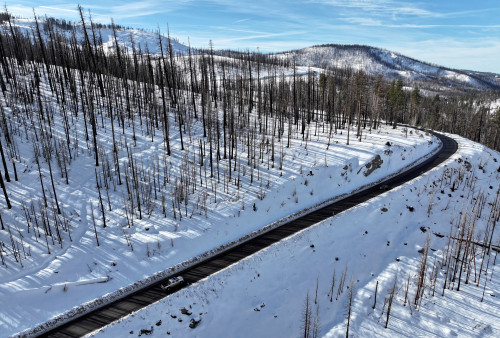By David Ljunggren
OTTAWA (Reuters) -The Canadian team working on a trade deal with the United States could walk away from talks in the wake of a U.S. decision to impose a 35% tariff on some goods from Canada, an adviser to Prime Minister Mark Carney said on Friday.
Flavio Volpe, a member of Carney’s hand-picked Council on Canada-U.S. Relations, told CBC News that the negotiators would stay in Washington for the time being.
President Donald Trump on Thursday signed an executive order increasing tariffs on Canadian goods to 35% from 25% on all products not covered by the U.S.-Mexico-Canada trade agreement.
The White House cited what it said was Canada’s failure to stop fentanyl smuggling and a failure to address U.S. concerns about trade barriers.
“Team Canada is still in Washington working on a deal and they’re going to be there until we either have a conclusion of a good deal for Canada or that it’s time to take a pause and walk away,” said Volpe, president of Canada’s national Automotive Parts Manufacturers’ Association.
Carney wants a new deal to reset bilateral relations, saying Trump’s move to impose tariffs had irrevocably upended the decades-old trading and security ties between the two neighbors. The talks though have so far produced little.
Washington is also unhappy about Canada’s refusal to drop its own countermeasures, which were first imposed by former Prime Minister Justin Trudeau. He resigned in March to be replaced by Carney, who won an April election on the back of a promise to stand up to Trump.
In June, Carney had threatened to ramp up counter tariffs in July unless there was progress on the deal. A statement he issued early on Friday did not mention retaliation at all.
Brian Clow, a senior Trudeau aide who was in charge of U.S. relations inside the prime minister’s office for several years, noted that Trump had announced a number of deals with nations that declined to impose counter tariffs.
“Unfortunately, Canada stands on its own right now, along with China, because many other countries around the world refused to stand up to this President,” he said by phone. “So I’m not sure that further retaliation is the way to go here.”
The offices of Carney and Dominic LeBlanc, the federal cabinet minister leading the Canadian team in Washington, were not immediately available for comment.
Carney’s talk about needing to stand up to Trump cannot hide the divisions between those in Canada advocating for a hard line and those who worry about the potential economic damage.
Goldy Hyder, president of the Business Council of Canada lobby group, said Canada was clearly struggling at the talks and called for a new approach.
“As someone said to me, Canada is playing chess, but there’s nobody playing chess with it at the other end,” he said.
“We’ve got to make sure that we are thinking through: ‘What have we been doing and what do we need to do?’,” he told CBC News. “We’ve got to move with greater urgency, because our own economy is very fragile,” he told CBC News.
(Reporting by David Ljunggren in Ottawa; Editing by Frank McGurty and Hugh Lawson)





